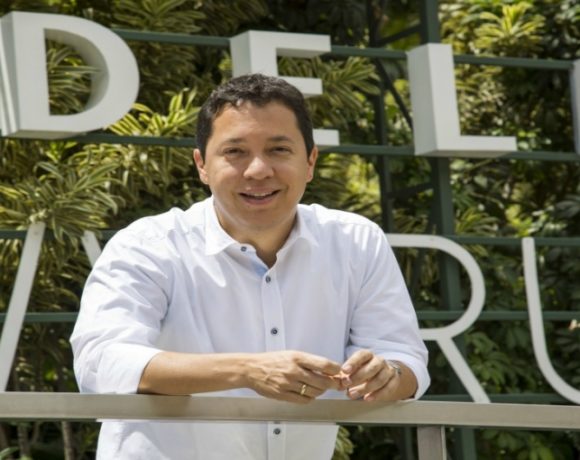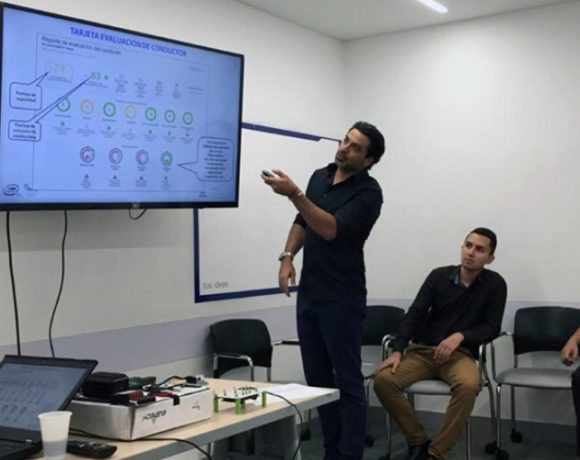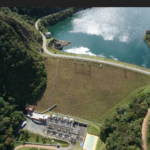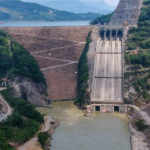Brokerages Offer Flexible Alternative to Banks for Colombia Money Transfers

While a growing number of foreigners are investing in real estate or other types of businesses in metro Medellin, some have found that the process of transferring relatively large amounts of investment funds from the U.S. or other countries can be frustratingly complex, time-consuming – and even costly.
Full disclosure: Ten years ago, my Colombian wife and I sold our apartment in the U.S. — and used the proceeds of that sale to buy our home in metro Medellin.
Through our family connections here, we found a retired banking executive who helped to explain the process and requirements for transferring a relatively large amount of funds from the U.S. to Colombia – enough money for an all-cash home purchase here.
That process led us to BBVA, one of Colombia’s biggest banks. Thanks to this executive’s expert advice and counsel, the process went through without a hitch, as we completed a timely, relatively stress-free, all-cash home purchase.
However, we have expat friends here in metro Medellin who haven’t had such luck. One couple we know found that their Colombian bank (at that time) only allowed U.S.-to-Colombia cash transfers of a maximum of US$70,000 per year.
As a result, they couldn’t make an all-cash home purchase here, as the relatively luxurious home that they bought (with a mortgage loan) cost about three times the US$70,000 limit.
Given the relatively hefty mortgage-interest rates here in Medellin (around 11% to 12%, compared to around 4% in the USA), this meant extra costs over their term of the mortgage.
Historic Problem
One key reason for relatively complex rules, limits and documentation required for overseas money transfers to Colombian banks unfortunately arose from the awful history of money-laundering by drug dealers. So, as happens too often in our world, honest people with legal earnings unfortunately are paying a price for the criminal behavior of others.
Beyond the complexities in money transfers for large investments, complexity also arises when making routine money transfers from the U.S. to Colombia for smaller purchases, such as for buying a new car, we’ve found.
As is typical of any Colombian bank, our current bank – Bancolombia – requires specific documentation regarding the origin of the foreign funds, before approving the transfer and disbursing the proceeds to us.
In our case, that means providing Bancolombia with a signed letter from our broker in the U.S. (Wells Fargo) as well as the broker’s print-out of the exact mutual-funds sales that generated the funds we needed for a car purchase.
As is typical in such transfers, Wells Fargo uses one of the world’s biggest banks – Citibank – as the correspondent bank to handle the funds transfer from the U.S. to our Bancolombia account here in Medellin.
Finally, once this paperwork has been approved, Bancolombia (like any Colombian bank) will “negotiate” a U.S. dollar/Colombian peso exchange rate. However, unless you have alternative bank or brokerage accounts here that offer similar foreign money-transfer services, then there isn’t much room for “negotiation.”
Brokerage Alternative
Colombian stock brokerages — like Colombian banks — have to be careful about running afoul of money-laundering, and must comply with strict Colombian financial regulations. Which is why brokerages, like banks, also require documentation to accompany foreign money-transfers.
However, Colombia’s brokerage sector suffered a recent shock – mainly the result of the collapse of now-extinct broker InterBolsa. The collapse was the result of an illegal scheme run by a small group of “insiders,” which in some respects might be compared to scams run by world-famous financial manipulators Bernie Madoff or Robert Allen Stanford, both of whom are now serving long jail sentences.
While the InterBolsa scandal to a certain extent rocked investor confidence in Colombia’s stock market, tighter regulation and oversight that resulted have helped restore investor confidence in Colombia’s brokerages and services, as Ultraserfinco investment advisor Andres Cardona explained in an October 8 interview with Medellin Herald.
Note: A list of all banks and brokerages regulated by the Superintendencia Financiera de Colombia (Colombia Financial Superintendent) is available here. Because Ultrabursatiles and Serfinco merged only recently, these now-merged companies still appear separately on the Superintendencia list.
Meanwhile, the recent surge in the value of the U.S. dollar against the Colombia peso – along with improved investor confidence in market regulation — has spurred renewed foreign-investor interest in Colombian financial markets and real estate, Cardona added.
While the recent plunge in global oil prices and the rise in the value of the U.S. dollar has hurt Colombia’s economy on a macro basis — and depressed the over-all value of the Colombian stock market (the “Colcap”) in 2015 versus 2014 — this has resulted in making many Colombian stocks look like relative bargains.
Some of Colombia’s publicly traded companies are actually benefiting from these macroeconomic changes. However, other companies — such as Ecopetrol (oil producer) and manufacturers that have relatively high exposure to U.S. dollar-denominated supplies or loans — have seen their stock prices take a hit, he explained.
Overseas Money Transfers: Flexibility Factors
For money transfers, Colombian brokerages often can be more flexible than Colombian banks, including more generous limits on the total amount of overseas money transferred, better COP/dollar exchange rates, and relatively faster processing, Cardona explained.
The reason for this: Brokerages typically can provide more personalized, competitive and relatively rapid service, as the relatively well-off client-bases of Colombian brokerages number only in the thousands, in contrast to bank client-bases, which number in the millions, Cardona explained.
In Ultraserfinco’s case, documentation required for foreign money transfers for investments here includes a copy of your passport, a copy of your driver’s license (which doesn’t have to be a Colombian driver’s license), a copy of your latest tax declaration, or — as an alternative to your tax declaration — proof of the origin of the funds being transferred.
These documents are then provided to Ultraserfinco’s legal department, which will check to make sure that you don’t have any criminal history or legal embargoes.
As for help on language/translation issues, Ultraserfinco has an English-language web site that outlines its services for both institutional as well as individual investors.
In addition, Ultraserfinco investment advisor Cardona (acardona@ultraserfinco.com) is bilingual (Spanish-English), while his assistant Lisete Pelaez (lpelaez@ultraserfinco.com) is trilingual (French, Spanish and English), Cardona added.
















